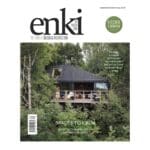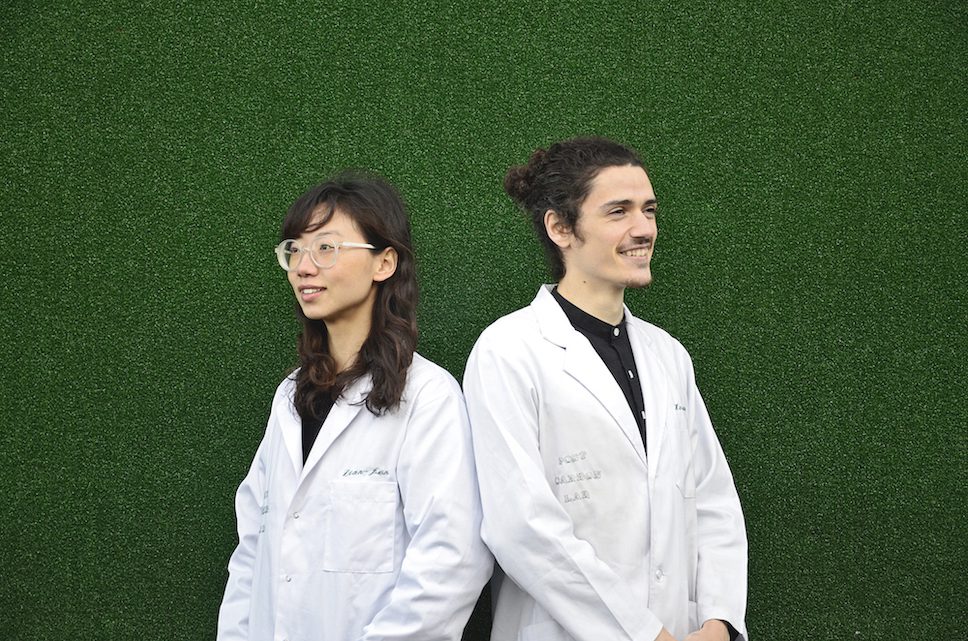
“We find it tremendously difficult to justify the act of making something in an era of climate emergency because, ultimately, we have to take something that is directly or indirectly derived from nature and yet the process and the result are not always benign or beneficial to nature. So why make or design at all?” Dian-Jen Lin, co-founder and CEO at Post Carbon Lab.
Why make or design at all? This is the poignant question asked by the founders of transdisciplinary design research studio Post Carbon Lab, as they focus on regenerative sustainability in the textile industry.
Founders Dian-Jen Lin and Hannes Hulsaert first met whilst working in a design workshop in France. Dian-Jen has a fashion and design background, and Hannes has experience in architecture, design, and engineering. With experience under their belts and an enthusiasm to make a difference, they now consider themselves ‘experimental application trailblazers’ in bio-finishing. They help businesses embed sustainable colours, surface finishes, textures, and properties into various textile products by providing the relevant microbial-based solutions.
Co-founder Dian-Jen Lin took some time out to tell us more…
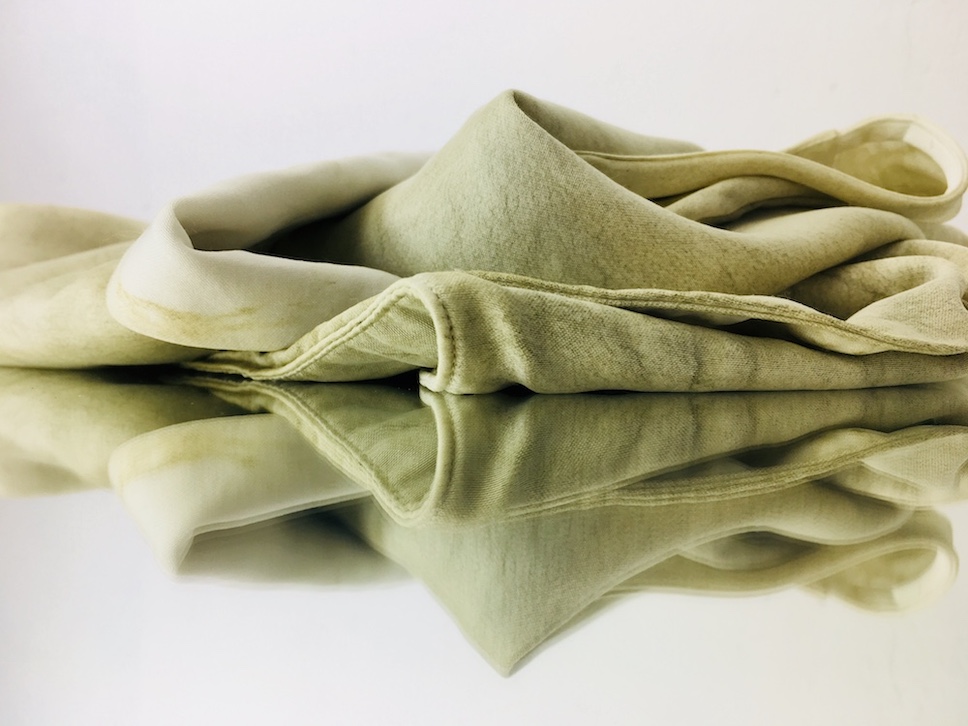
What were your intentions behind the name ‘Post Carbon Lab’?
As “post carbon” refers to “post-carbon-emission”, we have embedded our visions for the future into the name. We are looking to a future where we move beyond high-carbon dependence and build infrastructures and policies that mean end-users don’t have to worry about carbon footprints anymore; this is because those design decisions and calculations are cleverly engineered and holistically assessed prior to their implementation.
You have created a microbial colouration and photosynthetic coating™️ which creates climate-positive clothing that ‘breathes’. Can you tell us more?
Photosynthetic Coating™ is a living microbial layer that can be applied onto a wide range of textiles, fashion items or products to enable active photosynthesis during both the production and user phase. What this means is that you can be reading this sentence and combating climate change at the same time!
We aspire to be the UK’s first climate-positive bio-dyehouse; we are piloting this coating for textiles which literally breathes life into our garments. Although breathing technically means creating more CO2, photosynthesising more than the CO2 we create is the aim.
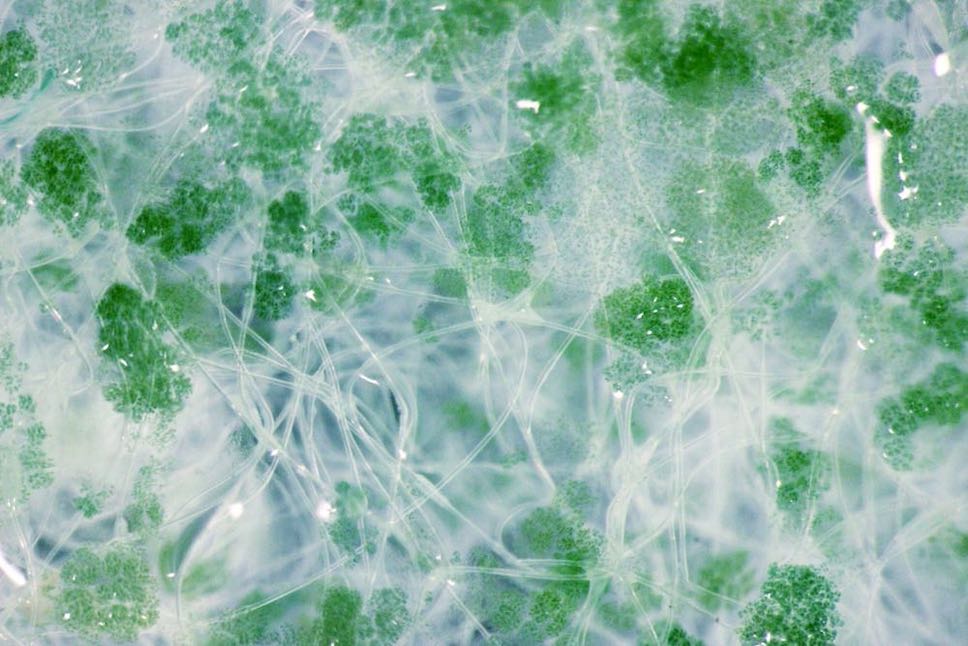
The word ‘sustainable’ is used a lot nowadays, but what is its impact when thinking about fashion and the environment?
In our opinion, ‘sustainable’ is as vague as ‘natural’, and it actually means “survivable”, so it’s not really ideal for neither the planet nor humanity. We also use the words ‘regenerative’ and ‘circular’ to cover a slightly more specific area.
Fashion contributes to 10% of humanity’s carbon emissions (some say 8-10%, some say 4%, depending on your source and year), as well as 20% of global water pollution, so I do think there’s a massive unaccounted consequence on our fashion choices that needs to be addressed.
Are there other notable carbon-capture projects that have caught your attention?
I like Project Seagrass which is based in the UK, and other research around blue carbon capture initiatives such as ocean regeneration by Russ George.
What’s next for Post Carbon Lab and what do you have your sights set on achieving?
We have been working on bioprinting, which will give our collaborating textile businesses more pattern control and aesthetic choices when it comes to brand exposure. We are also working with academia to explore some advanced additive manufacturing technology.
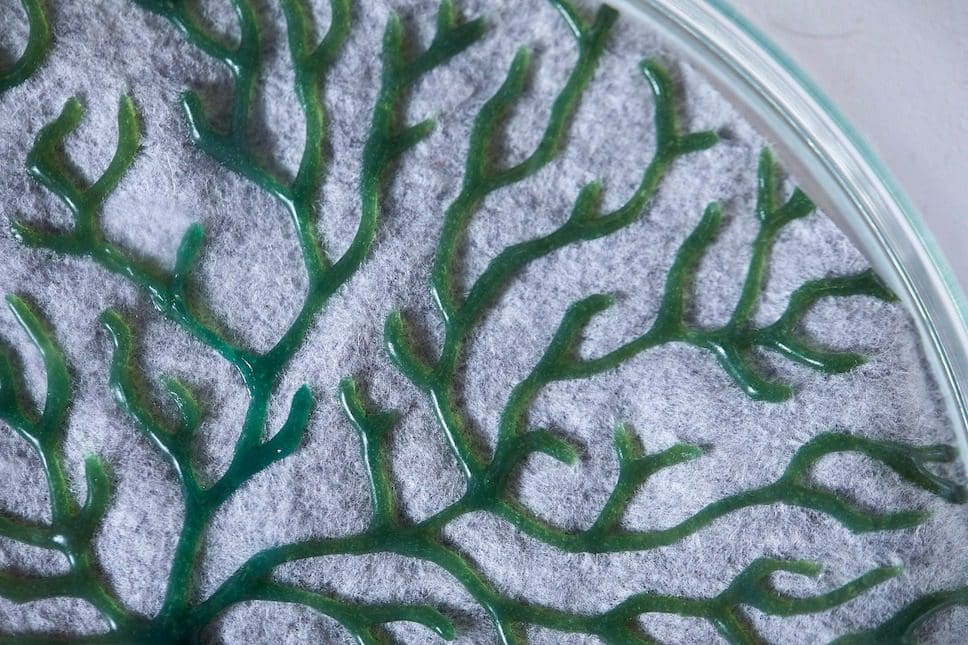
Photos courtesy of Post Carbon Lab.
Learn more about the bio-finishing R&D social enterprise, Post Carbon Lab, and its pioneering work.
Read more Meet the Maker interviews here on enki, including multi-disciplinary designer Mari Koppanen and her biomaterial design projects.
